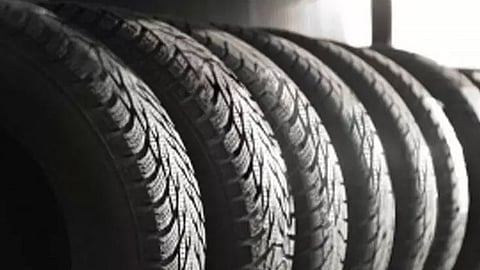Growth prospects are bright
The Indian tyre industry has been on an impressive growth path in recent years. What do you see as the primary drivers of this growth?
Yes, after the Covid-induced downturn, the tyre industry has witnessed a remarkable growth trajectory. India has emerged as one of the leading manufacturers of tyres globally, with domestic manufacturing surpassing 200 million tyres per annum. Several factors are at play, but foremost has been the expansion of the domestic automotive industry, which is evolving rapidly in both volume and premiumisation. With India positioning itself as a global automotive hub, demand for tyres is scaling up. The rise in exports is a testament to the Indian tyre industry’s enhanced integration with global supply chains, brightening growth prospects.
What has been the impact of geopolitical challenges on Indian exports, and how are tyre manufacturers meeting these challenges?
With a turnover of approximately R1 lakh crore and exports nearing R25,000 crore, the Indian tyre industry is one of the few manufacturing sectors with a high export-to-turnover ratio. Sustained focus on R&D and the development of advanced technology products, aided by competitive pricing and branding efforts, have helped tyre manufacturers drive growth in exports despite a challenging environment. Downside risks to Indian tyre exports remain, including global supply chain disruptions, geopolitical risks, the West Asia crisis, and rising shipping costs. However, the industry is committed to meeting these challenges through continued focus on manufacturing sustainable tyres with superior performance.
Natural rubber is indeed a crucial component of tyre manufacturing. Can you provide an update on the plantation project to address raw material supply issues?
India is the world’s second-largest consumer of natural rubber, yet domestic supply falls significantly short of industry demand, leading us to rely on imports. ATMA has been advocating for sustainable, indigenous rubber plantations to bridge this gap. The INROAD project, the first of its kind in the world, has seen select ATMA members, including Apollo, CEAT, JK, and MRF, partnering with government agencies and funding rubber plantations in the North East and West Bengal, with an investment of R1,100 crore. Already, over 125,000 hectares of land across 94 districts have been brought under natural rubber plantation under the INROAD project over four years. This represents one of the highest new plantation achievements in the country within a four-year period.
Sustainability is one of the most discussed topics in the automotive industry. What steps are being taken to make tyres more eco-friendly?
Sustainability is central to the future of our industry. Today, tyre manufacturers are investing in greener production technologies and sustainable materials. ATMA members are promoting environmentally responsible practices across the supply chain. In terms of product development, our members are investing in low-rolling-resistance tyres, which improve fuel efficiency and thereby reduce vehicle emissions. The industry is also exploring alternatives to traditional raw materials, such as bio-based and recycled materials, which can reduce environmental impact without compromising quality.
There’s also a lot of discussion on the impact of electric vehicles (EVs) on the tyre industry. How is the industry preparing for this shift?
The rise of EVs is a major development and has unique implications for the tyre industry. ATMA is working closely with the automotive sector to align our R&D efforts with the specific needs of EVs. For instance, developing tyres with low rolling resistance is imperative for maximising the range of EVs. EVs tend to be heavier than conventional vehicles, leading to higher performance demands on tyres. Their torque characteristics are also different. Indian tyre manufacturers are proactively addressing these requirements.
Is there anything specific you would like to communicate to policymakers?
Yes, supporting indigenous rubber cultivation, providing incentives for R&D in sustainable technologies, and addressing trade policies that impact exports would benefit the industry immensely. ATMA has already requested duty-free imports of natural rubber (NR) to the extent of the domestic demand-supply gap in the country. Port restrictions on NR imports need to be removed immediately. Additionally, the pre-import condition on NR imports against tyre export obligations needs to be removed, as it constrains operations. u

